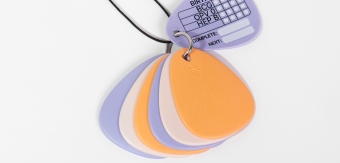Contrary to what Google thinks, I am not interested in dating Christians. No offence to Christians, of course – just that I’m married. So I’m getting a little annoyed that when I log on to various websites, I get more or less harangued into looking at single Christian ladies’ profiles.

Richard Dawkins
Richard Dawkins vs. Ashley Madison
Why are these ads constantly rearing their inoffensive but inappropriate heads whenever I open up Google Chrome? For two reasons: number one is I was doing some religion-based research because I was discussing Richard Dawkins’ book The God Delusion with someone; and secondly, a friend of mine mentioned to me that whenever he saw ads for Ashley Madison’s website – a rather lewd pseudo-dating website where the slogan is “Life is short. Have an affair” – he kept misreading Ashley Madison as Ashley Morrison. Having never heard of Ashley Madison, I googled it. Big mistake. Now Google thinks I’m up for a bit of secret rumpy-pumpy. With Christians. Heaven preserve us!

Ashley Madison
Then there are the video ads that start playing without me even clicking on them; and even worse, the ads that open a whole new window that refuses to go away. Instinctively clicking on either cancel or OK seems simply to fuel the ads to pervade one’s browsing experience. Want to make $4,000 a month from home by doing next to nothing? Sure, but it’s probably too good to be true, so I’m sure as heck not going to click on your self-satisfied ad that boasts a string of fake testimonials, thank you very much.

My kingdom for an ad-free life
The trouble is, of course, that most of us are not so tech savvy that we know which privacy settings to use, which ad blockers are the most effective, or how much of our personal data is gathered and used in a rather unscrupulous manner. Incidentally, do you know who owns the rights to the photos you casually upload to Facebook? It sure as hell isn’t you. It’s Facebook. They can more or less do anything with your happy snaps without asking you. Oh, and before you rush to delete your Facebook account, that won’t help: while other people remain tied to the content (because they have either tagged you or other people in the photo, or shared it), there is jack all you can do about it.
In essence, your online life is for sale. Your browsing habits are tracked, meaning you will continue to get ads popping up every second that are specifically targeted towards what you’re believed to be interested in. In my case, garden furniture and single Christians.
But can you do anything at all about it? Yes. For starters, you can install an ad blocker. Apple’s app store has at least 20 apps for that purpose, designed specifically for iOS. Or if you want to delve into who’s monitoring what about you, you can install Ghostery browser extension, for example. The use of ad blockers has grown exponentially both here in the UK and across the globe, with figures of a nearly 50% increase being reported over the past year alone.
But is there a downside to installing an ad blocker? Well, they may not bother major websites so much, but smaller ones that do rely on advertising to stay afloat may well suffer. So while the absence of ads might be good for you and me in the short term, we may eventually lose the free web as we know it because sites will need to start charging for access. I personally don’t know anybody who subscribes to The Times Online, but I do know a lot of people who use The Guardian’s free site. And that’s not because of my politics. But these big guns aren’t the ones at risk; it’s the little leaguers who may find themselves skydiving into the red. Does anyone ever actually click on that “donate” button?
So ultimately, the question is: what price are we prepared to pay for a free web? Or perhaps a more pertinent question is: what other business model might there be to ensure that we keep a free web?
Ashley is a copywriter, blogger and editor




